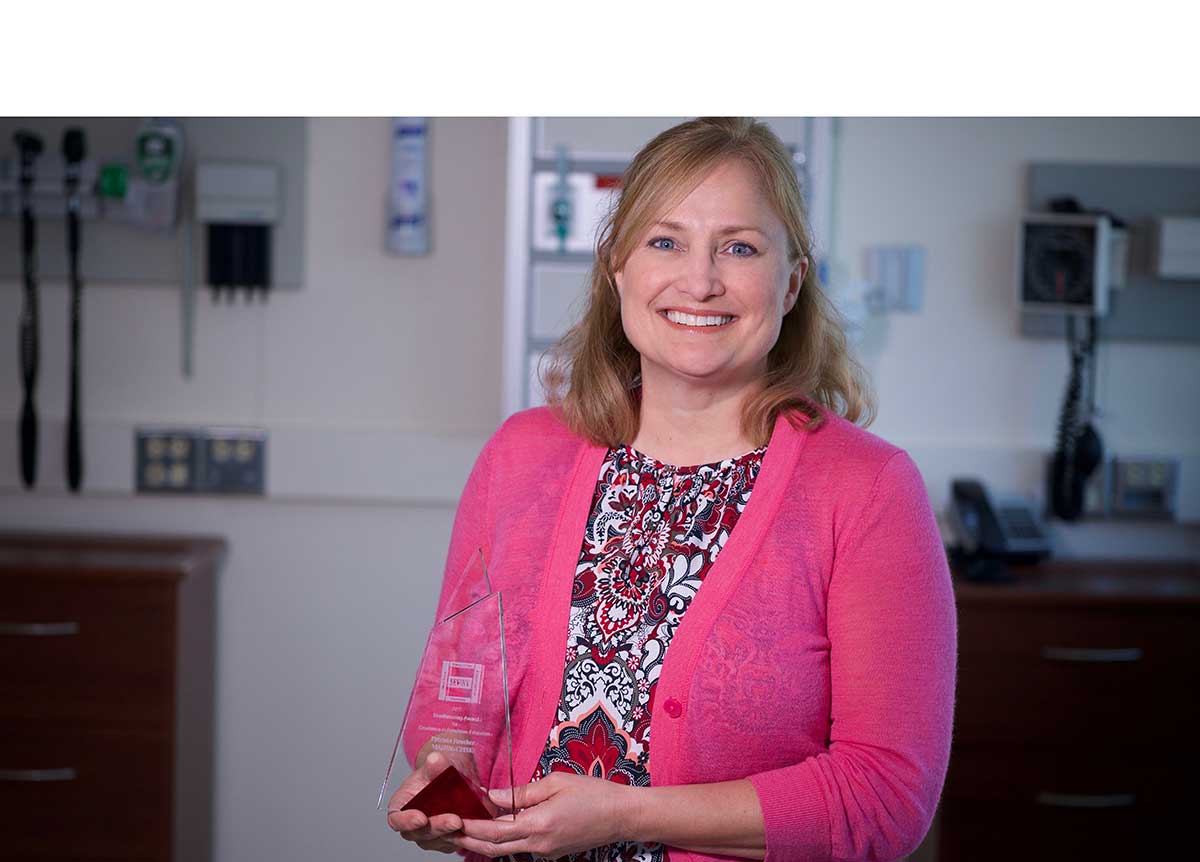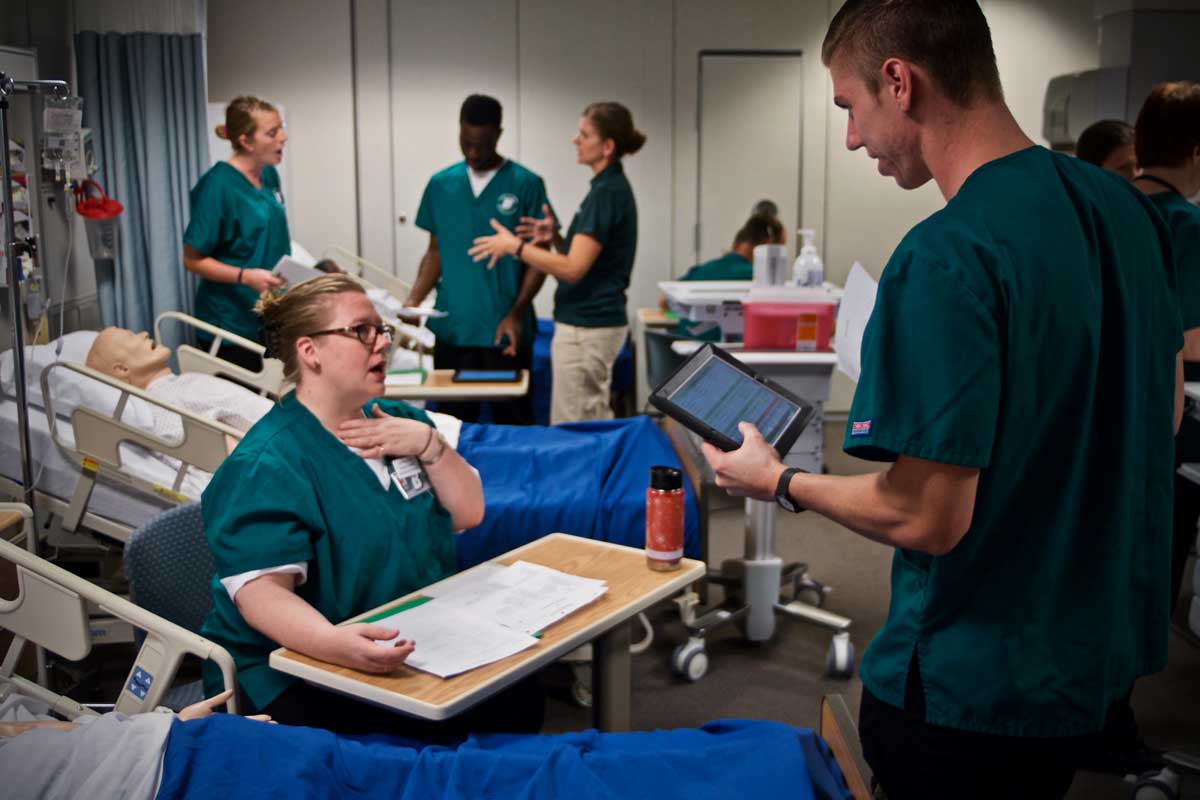Patti Reuther receives Excellence in Simulation Education award

Patti Reuther, director of the Innovative Simulation and Practice Center (ISPC) at Binghamton University’s Decker School of Nursing, was awarded the 2017 SimManning Excellence in Simulation Education award. She received the award at the Simulation Educators of Western New York conference held June 2 at St. John Fisher College.
The SimManning award is given to individuals who use simulation activities to their greatest potential to aid in learning.
“I’m fortunate to have a supportive administration and talented, dedicated faculty members who work to realize the vision I have for our students,” said Reuther. “It’s an honor to have been nominated, and more so to be recognized with this award.”
Reuther is certified in simulation healthcare education and is a registered nurse with specialties in neonatal, pediatric and obstetrical nursing. She joined the Decker School in 2008 as a clinical instructor before becoming coordinator of the ISPC in 2012. Reuther was named director of the ISPC in 2016 and a year later led the center to achieve accreditation in Teaching/Education by the Society of Simulation in Healthcare. The Decker School is the first nursing school in New York state to achieve this accreditation.
At Decker, Reuther has developed and enhanced numerous simulation activities for undergraduate and graduate nursing students, integrating simulation training throughout the curriculum to increase skills, critical thinking, cultural awareness and sensitivity.
“[Reuther] has embedded simulation activities into courses so there is a direct connection between course objectives and content with the skills used in a defined and related scenario,” wrote Decker Clinical Lecturer Alison Dura in a letter nominating Reuther for the award.
In 2016, Decker’s ISPC delivered 4,596 hours of simulation education to undergraduate nursing students and 1,631 hours of training to graduate nursing students. In addition, the center partnered with the Neonatal Intensive Care Unit at UHS Wilson Medical Center in Johnson City, N.Y., to provide simulations for their newly hired nurses to complete their Neonatal Resuscitation Program certification.
The ISPC has only two staff members, Reuther and Academic Technical Specialist Patrick Leiby; yet, they have made several enhancements to the simulation program.
One such achievement is the development of a customized Electronic Health Record (EHR) that helps nursing students become familiar with navigating patients’ medical and health records, as well as scanning patient bracelets and medications. Decker’s own EHR was created because available systems were either too costly or did not meet the school’s program needs. The EHR is now used in all Decker simulations.
Additionally, in response to faculty concerns that junior nursing students were having difficulty conducting a head-to-toe patient assessment in a reasonable length of time, Reuther and Leiby developed a patient simulation that requires students to independently perform a routine physical assessment within 10 minutes. Student observers in another room watch the performance on video and complete a checklist for their peers. Observing students then have the chance to perform the assessment while being evaluated themselves. Students benefit from watching their classmates, while faculty provide feedback during debriefing sessions.
“We now have a well-designed, thoughtful and active program that supports learning at different levels in the curriculum,” Dura wrote. “Scenarios are not random; rather, they are linked to course content. In this way, students can transfer their course learning to simulation and back again, and then out to real clinical care.”


